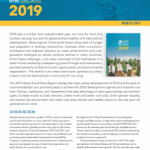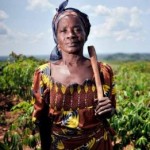[available in English and Arabic] IFPRI’s flagship report reviews the major food policy developments and decisions of the past year, and looks ahead to 2019. This year’s Global Food Policy Report highlights the urgency of rural revitalization to address a growing crisis in rural areas. Focusing on the needs of rural areas is one of […] Source: IFPRI Egypt Country Office
Inclusive Transformation of Rural Ethiopia: Patterns and Options (May 2)
Rural people around the world continue to struggle with food insecurity, persistent poverty and inequality, and environmental degradation. The 2019 Global Food Policy Report that will be launched during the conference on "Inclusive transformation of rural Ethiopia: Patterns and options" on May 2, 2019 in Addis Ababa, highlights the urgency of rural revitalization to address >> Read more Source: Ethiopia Strategy Support Program
Climate Change in Egypt: from adaptation to mitigation of the causes of climate change
Othman Al-Sheikh, Ministry of Agriculture and Land Reclamation, Egypt
Climate change has become a matter of major concern at various levels in Egypt. Attention is now being paid to a range of scenarios associated with the rising levels of the Mediterranean Sea and the correlation between the sea-level-rise and the potential inundation of some coastal areas across the Delta of Egypt, as well as the prospective impact on agricultural productivity in quantitative and qualitative terms. Source: IFPRI Egypt Country Office
Can governments promote homestead gardening at scale? The case of Ethiopia
This story was cross-posted from the IFPRI website and was originally written by Kalle Hirvonen and Derek Headey. Eating fruits and vegetables can help ensure adequate nutrition and reduce the risk of heart disease, cancer, and obesity. Yet, most people in lower income countries do not get the recommended daily servings of those foods, largely >> Read more Source: Malawi Strategy Support Program
Where is the standardized measure of women’s empowerment?
The importance of women's empowerment in agriculture is frequently discussed. However, understanding what empowerment looks like in different contexts is challenging. Previous GSSP research examined the distinct role of women in Ghana's agriculture sector. This blog post by Amber Peterman (UNICEF & University of North Carolina) and Greg Seymour (IFPRI) discusses the importance of and […] Source: IFPRI Ghana
- « Previous Page
- 1
- …
- 48
- 49
- 50
- 51
- 52
- …
- 57
- Next Page »



